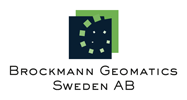InfoBaltic (The Information Office for the Baltic Sea, Stockholm, Sweden):
During late July and early August reports regarding cyanobacterial blooms were abundant from Kramfors (northern east-coast) though Varberg (west-coast) in Sweden, and for a time both Gotland and Öland were completely surrounded. It was not until the wind picked up in strength in the beginning of august the blooms started retreating after multiple weeks of bathe-unfriendly water in places.
Potentially poisonous species like Nodularia spumigena were favored by the warm weather, and some water samples showed a high concentration of this variety. There were also multiple reports about illness after swimming, from parents as well as dog-owners. The toxicity of the water containing cyanobacteria is usually not that high that humans get ill, and this has not been reported previously with medical backup. However, other more potent species are also favored by warm water, especially in fresh water. This can be more common bacteria like E. coli, or it can be other types of phytoplankton such as diatoms and dinoflagellates. With today’s monitoring using satellite pictures to analyze the presence of algae blooms only works on the pelagic masses, since resolution is too low to reconstruct freshwater bodies and costal zones correctly. This makes it hard to follow up cases of illness and concluding the cause without making extensive water analyzes, which is both expensive and laborious during times like the past weeks. Follow-up would be much easier using the CyanoAlert technology where both chlorophyll a and chlorophyll unique to cyanobacteria is picked up, so that an exclusion method could be used to decide if the illness is due to cyanobacteria, phytoplankton or some other reason. People could also use the near-real time feature in the app to look at the local beaches and see for themselves what the water contains. Hopefully this will be available for the public to use as soon as possible!





